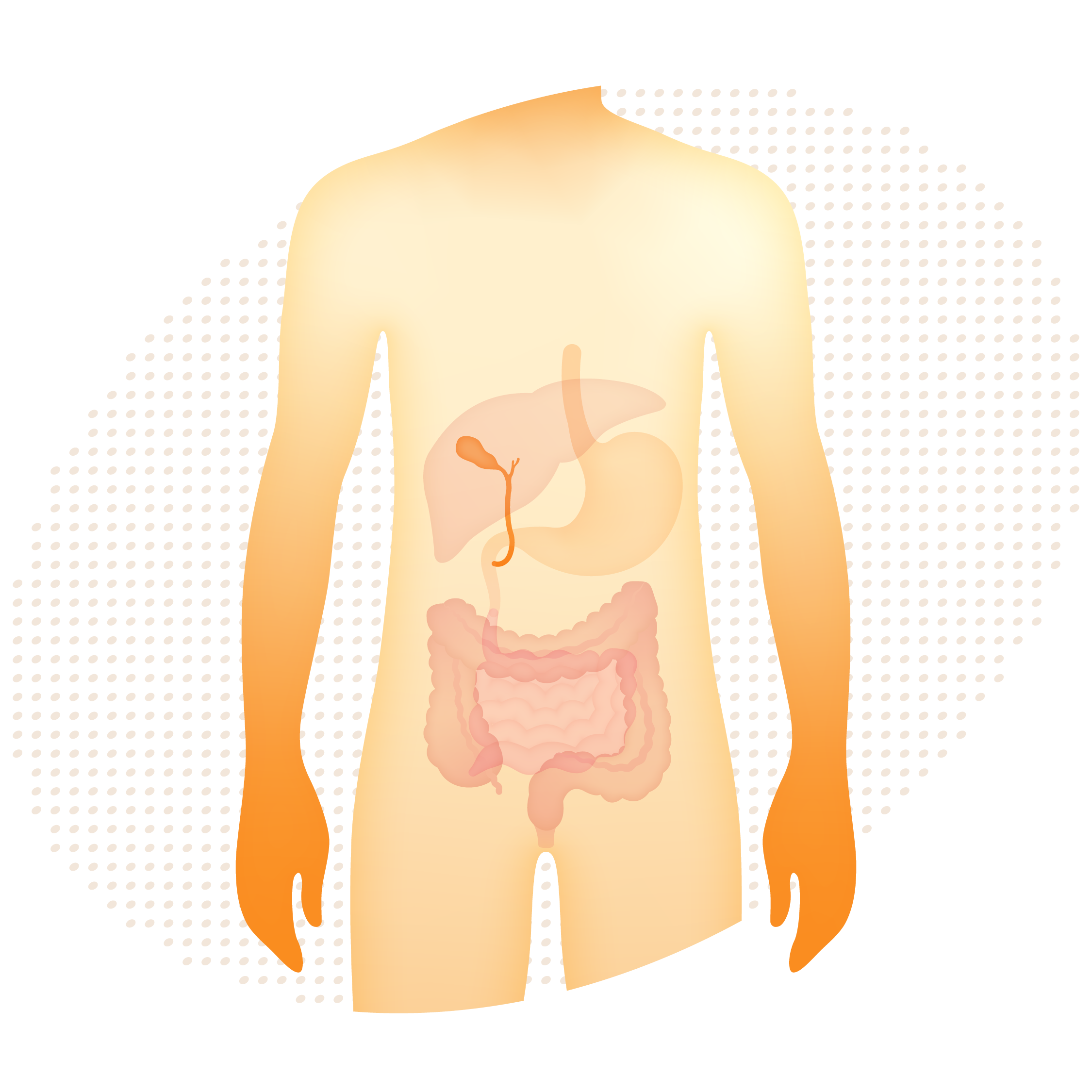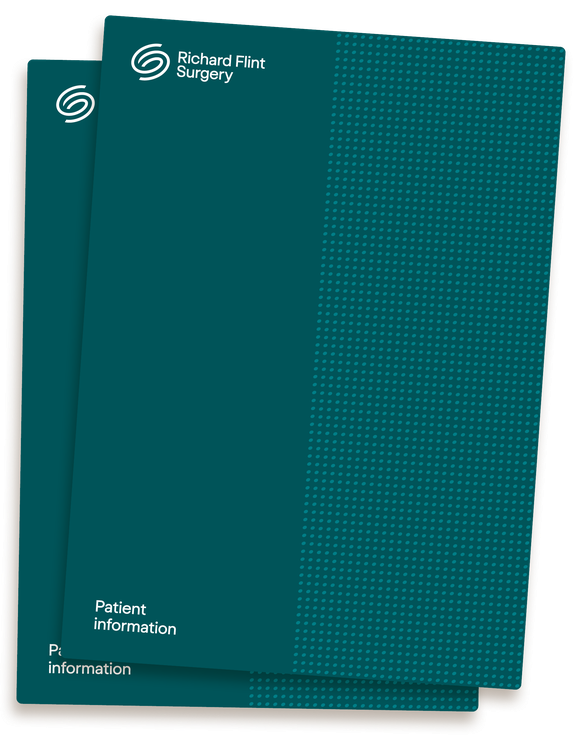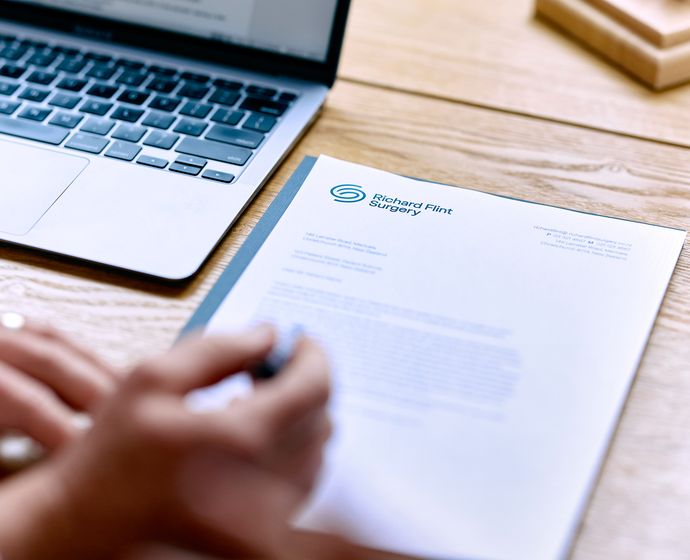
Gallbladder removal
The gallbladder is a 100 ml sac that hangs off the liver and stores bile. In some cases, stone can sediment from the bile, which then blocks the gallbladder, causing pain. The best treatment for this is removal of the gallbladder, which is called a cholecystectomy. Below, you can find a video of the surgery.

What to expect
- During your consultation We’ll review your medical history together and discuss the symptoms you’re having to help me determine the severity of the issue and the best course of action.
- After your consultation We’ll book you in for surgery and provide detailed pre-operation information and instructions to make sure you fully understand what to expect on the day of the surgery, including a detailed outline of your planned post-surgery care.
Gallbladder surgery, a pre-op and post-op guide
Days before surgery
Medication and supplements
Some medication will need to be withheld before surgery.
Bring your regular medications in their original packaging to the hospital, and follow instructions on which ones to take on the day of surgery.
Special considerations
Notify us if you develop a cough, infection, or any change in health in the week before surgery.
Arrange help at home for the first few days after surgery, especially for transportation, meals, and household tasks.
Plan not to drive for a week after surgery, so arrange for transport and assistance as needed.
It is normal to feel anxious. Bring something to help you relax, such as headphones, music, or a book.
The day before surgery
Shower or bathe the night before or morning of surgery.
Do not shave the surgical area; this will be done by the surgical team if needed.
Eat a light meal the evening before and avoid alcohol after 8pm.
Do not eat or drink anything after midnight unless instructed otherwise (some medications may be taken with a sip of water).
The day of surgery
Remove all jewellery, piercings, make-up, and nail polish before coming to the hospital.
Wear comfortable clothing and bring any hearing aids or glasses you may need.
You may wish to bring a friend or family member to accompany you, and drive you home.
Arrive at the hospital at the specified time and bring all necessary paperwork and identification.
When do I arrive?
You will be required to arrive at the hospital a few hours before surgery so that the hospital staff can be prepared for the operation.
If you have a morning operation, arrive at the hospital at 7am. Do not have any food or drink after midnight prior (do not have breakfast).
If you have an afternoon operation, arrive at the hospital at 11am. Have your last Optifast no later than 8am and drink only water until 10am. Do not have anything after 10am.
General recovery timeline
First week: Focus on rest, wound care, and gentle movement.
Two to four weeks: Gradually return to full activities.
After the second week: Most patients are back to full activity.
Wound care
Your wounds will usually have dissolving sutures and will be covered in a waterproof dressing. Keep your wound dry for the first 24 to 48 hours. After this period, you may shower, but avoid submerging the incision in water (baths, swimming) for 2 weeks.
Inspect the dressing after showering. The waterproof dressing may become wet or loose. If this happens, you may remove it, but try not to disturb the sticky plaster dressing underneath, which is adhered to the wound. This plaster normally falls off after about 2 weeks.
Do not apply ointments, antiseptics, or powders to the incision. Simply keep it clean and dry.
Monitor for signs of infection: Notify your surgical team if you notice excessive redness, drainage, swelling, or increasing pain at the incision site.
Pain relief
Take prescribed pain medication as directed. It’s normal to require this for the first 3 to 5 days.
For more information about pain relief medication, download the gallbladder surgery guide below.
Activity and mobility
Early movement is encouraged: get up and walk as soon as you are able, even on the day of surgery. Walking helps prevent blood clots, improves breathing, and speeds up recovery.
No absolute bed rest is needed; staying active helps your recovery.
You may resume driving when you can perform an emergency stop without pain, usually after 3 to 5 days.
Bowel Care
Constipation is common after gallbladder surgery. Use over-the-counter laxatives (e.g., Metamucil, Lactulose, Coloxyl) if needed, and do not hesitate to take them preventively for the first few days.
Stay hydrated and eat foods high in fibre to help prevent constipation.
Diet
No strict dietary restrictions unless otherwise instructed.
Medications
Take your medications exactly as prescribed on your medication discharge instruction sheet. Unless otherwise directed by your doctor, all of your medications and vitamins can be swallowed as they are given. Alternatively you may crush tablets, use chewable or liquid forms.
For more information about post-op medications, get in touch or download the gallbladder surgery guide below.
Contact Dr Flint at the rooms or your GP if you experience:
Fever above 38°C.
Increasing redness, swelling, or drainage from the incision.
Severe or worsening pain not relieved by medication.
P. 03 375 4480
For more information, download the reflux surgery guide below.
Patient information for gallbladder surgeries
Download our pre- and post-op patient guides for more information on what to expect during the process. Please note, these are general information brochures. When you are booked in for your surgery, you’ll receive any personalised information and details about your specific procedure.


If you have unusual abdominal or bowel pain, I may be able to help.
Ask your GP to refer you to Richard Flint or get in touch with me to discuss your options.
FAQs
I am an independent surgeon, but I operate out of St George’s Hospital, one of Christchurch’s leading healthcare facilities. Enjoy comfortable surroundings and the support of dedicated nursing staff delivering quality care throughout your stay.
Gallbladder surgery usually requires a 1-night stay.
It depends on the type of medication. Here is a pre-op guide to find out more. If you have any doubt or further questions, don't hesitate to reach out to me or your GP.
Here is an indicative cost for a lap cholecystectomy (keyhole surgery to remove the gallbladder): $11,684 to $14,580.
Note that this price is indicative.
Most of the surgeries I perform are covered by your insurance* or ACC. Please check your health insurance plan to confirm the extent of your cover.
*All insurance providers are accepted.
Visit the FAQs if you have more questions, or get in touch with me for any other concerns.